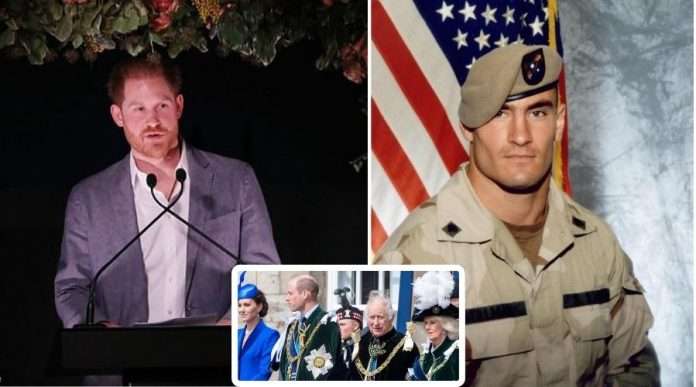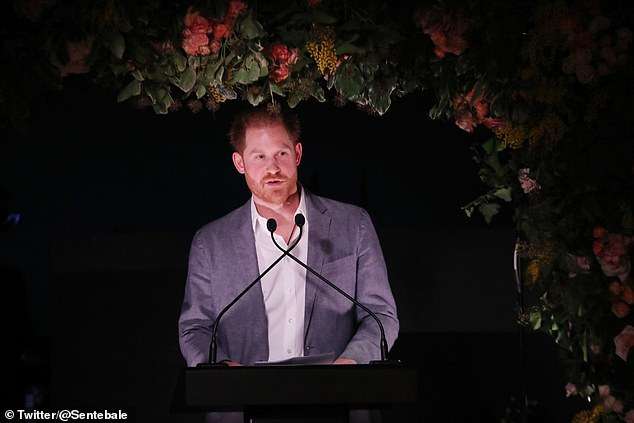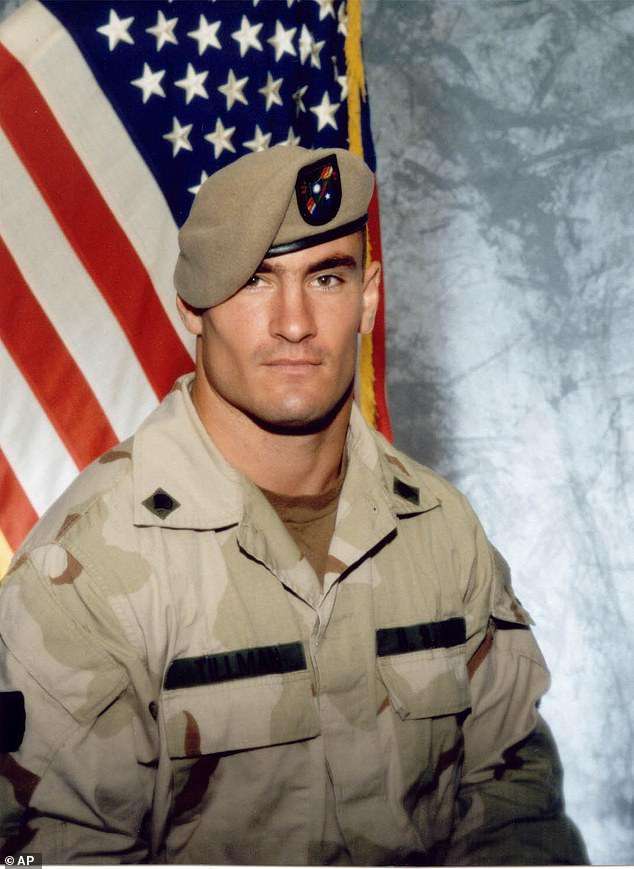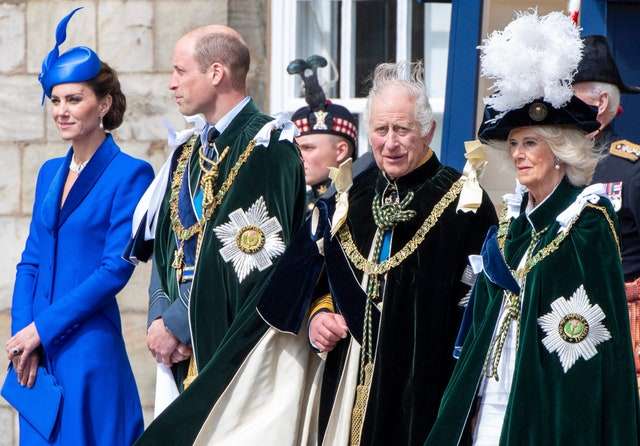When the Duke of Sussex gave his first speech after quitting royal duties in 2020 to seek his fortune overseas, he voiced both his sadness and indignation that his grandmother, Queen Elizabeth, had not allowed him to keep his ties to the Armed Forces.
Our hope was to continue serving the Queen, the Commonwealth, and my military associations, but without public funding,’ he told guests at a charity event in West London. ‘Unfortunately, that wasn’t possible.’
Prince Harry will have been further wounded, say old friends, to see his brother, Prince William, handed the role of Colonel-in-Chief of the Army Air Corps by their father, King Charles, at a colourful ceremony at Middle Wallop, Hampshire, last month.
There is a poignancy to the location, as Middle Wallop is where Harry, 39, did his training before serving with the Army Air Corps as co-pilot in Apache attack helicopters in Afghanistan.
There was a time when the younger brother could legitimately have expected to be given the Army Air Corps role himself.
For, although William, 42, went on to pilot helicopters with the search and rescue service of the Royal Air Force, he has never been involved in active conflict.
Harry’s decision to quit royal life means that he is no longer eligible for such honorary roles, however.
‘Harry was genuinely hurt that he was not allowed to retain his formal links to the military,’ one British friend of the Prince tells me. ‘They meant the world to him.
In the absence of new honours from the King, Harry has taken to accepting awards in the U.S., his adopted homeland. And the latest of these has proved contentious.
Next week, the duke is due to receive the Pat Tillman Award for Service at the Excellence in Sports Performance Yearly (ESPY) Awards – a ceremony in Los Angeles run by television network ESPN – for his work with the Invictus Games Foundation. It will be hosted by Meghan’s friend, the tennis star Serena Williams.
The award is named in memory of a late American football star, who gave up his sporting career to serve in the military after the devastating terror attacks on September 11, 2001.
Tillman was killed by friendly fire in Afghanistan three years later.
Harry founded the Invictus Games in 2014 to help wounded, injured or sick armed services personnel and veterans, and he has been widely praised for the initiative.
However, the announcement of his Pat Tillman award has provoked an outcry in the U.S., with more than 50,000 people signing a petition against it.
The critics include Tillman’s mother, Mary, who has said: ‘I am shocked as to why they would select such a controversial and divisive individual to receive the award. There are recipients far more fitting. There are individuals working in the veteran community that are doing tremendous things to assist veterans.
‘These individuals do not have the money, resources, connections or privilege that Prince Harry has.’
The ESPY Award is just the latest honour the Duke has accepted since he moved to California.
Among the others was the Robert F Kennedy Human Rights Ripple of Hope Award, presented to Harry and Meghan for the work they have undertaken in ‘promoting racial equality, social justice and mental health’.



















